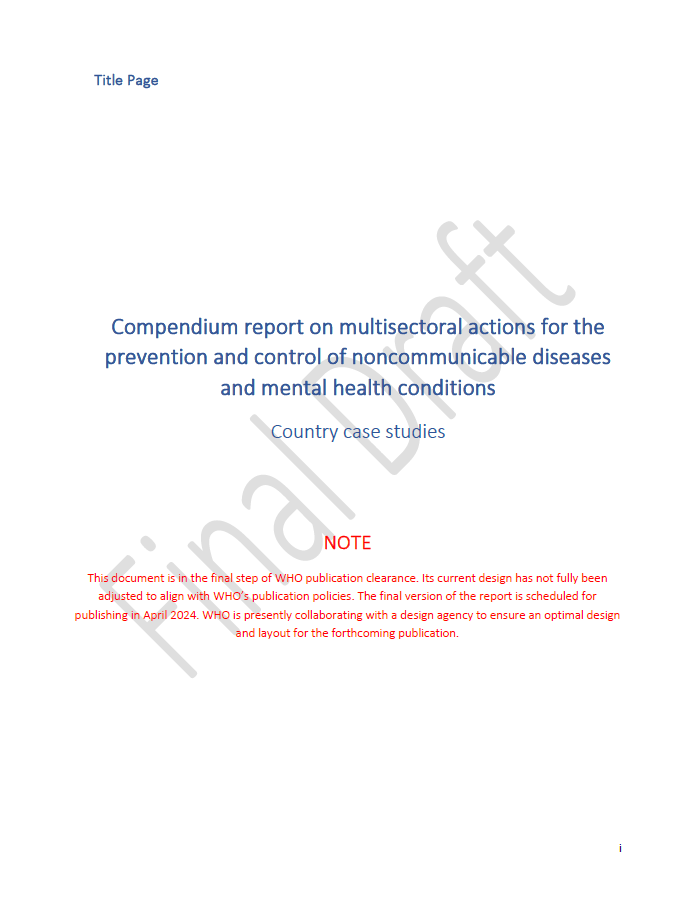Health Action International (HAI)
TRANSITION FROM A DONOR-SUPPORTED PROJECT TO A NATIONAL DIABETES PROGRAMME: LESSONS FROM TANZANIA
Briefs & Fact Sheets
09 Apr 2023
19 Jan 2024

Noncommunicable diseases (NCDs) and mental health conditions have a profound impact on societies, communities and individuals around the world. Their risk factors and determinants extend beyond the traditional health sector. Addressing this complex challenge necessitates interventions that reach beyond the boundaries of public health and requires a coherent, coordinated approach across all relevant governmental sectors.
The WHO Global Action Plan for the Prevention and Control of NCD recognizes the vital role of multisectoral collaboration (also known as the whole-of-government approach) in accelerating the implementation of WHO’s recommended policy options and cost-effective interventions. Yet, governments face challenges in implementing and sustaining multisectoral actions, in part due to limited capacity for cross-sectoral collaborations.
Understanding, documenting and sharing how governments implement multisectoral actions are essential to overcome these challenges and identify the capacity needs for coherent and sustainable responses to NCDs and mental health.
In 2019, WHO Member States requested the Director-General to provide a consolidated report to the World Health Assembly analysing approaches to multisectoral action for NCD prevention and control, including addressing social, economic and environmental determinants of health. This compendium report is the Secretariat’s response to that request and features case studies from countries across WHO’s six regions.
In March 2022, WHO launched a two-stage process to identify and select national and subnational experiences that demonstrate the use of multisectoral actions. The first stage involved a global call for submissions, which yielded 95 experiences from 46 countries. This stage culminated in the publication of a global mapping report on the experiences of countries in utilizing multisectoral actions to strengthen the prevention and control of noncommunicable diseases and mental health conditions.
The second stage, represented by this compendium report, expands on selected national and subnational experiences. These case studies offer insights into the practical application of multisectoral approaches from real-life contexts. They provide valuable lessons learnt and guidance on enhancing collaboration across government sectors to address NCDs and mental health conditions.
A qualitative analysis of the case studies has unveiled significant achievements including: (i) formalizing coordination mechanisms or other governance platforms; (ii) creating new partnerships as a result of multisectoral collaboration; (iii) accelerating policy change and programme expansion; (iv) improving understanding and awareness of NCDs and their determinants; and (v) enhancing knowledge collaboration and information sharing as standard practice.